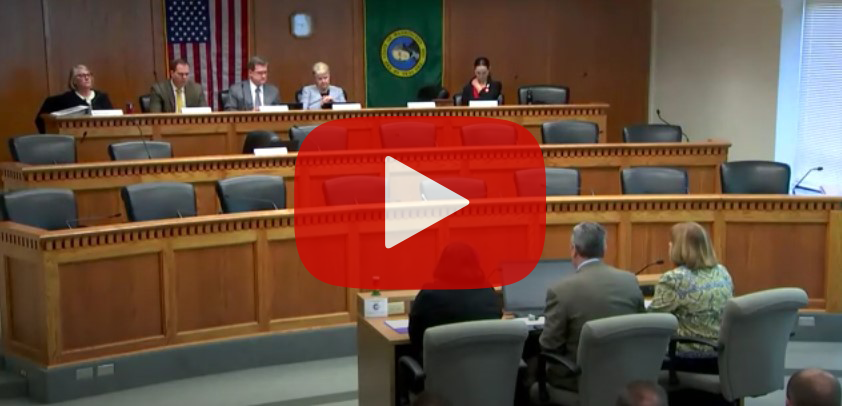This week, after passage by the Washington State House of Representatives along party lines, HB 1575 was given a public hearing before the Senate Labor and Commerce Committee. As the Freedom Foundation has documented, the union-backed legislation seeks to undermine the U.S. Supreme Court’s 2018 decision in Janus v. AFSCME by, among other things, making it easier for public employees to sign up for union dues deductions than it is to cancel them.
As written, HB 1575 allows unions to sign up public employees for dues deductions from their wages in writing, electronically, or over the phone via “recorded voice authorization,” but it also specifies dues deductions can only be cancelled in writing. It is perhaps the most obviously indefensible aspect of the bill.
Throughout the March 21 hearing on the bill in the Senate Labor and Commerce Committee, the bill sponsor and union lobbyists could not articulate a coherent reason for the disparity.
When asked by Sen. John Braun (R-Centralia) whether she would be open to amending the bill to allow public employees to opt-out of union deductions using the same methods permitted to opt-in, HB 1575’s prime sponsor, teachers’ union activist Rep. Monica Stonier (D-Vancouver), ignored the question entirely and replied that, “We want to make sure (public employees) know fully what they’re giving up when they choose to opt out.”
Three union lobbyists — Lucinda Young of the Washington Education Association, Pat Thompson of the Washington State Council of County and City Employees and Erin Haick of SEIU 925 — obfuscated even more.
The best case they could make for the legislation was that it is necessary to establish “clarity and consistency” for how government employers handle union dues deductions.
After their testimony, Sen. Maureen Walsh (R-Walla Walla) asked the lobbyists to provide a “more convincing answer” than that provided by Stonier as to why employees could authorize dues deductions in more ways than they could cancel them.
Thompson, too, ignored the challenge and simply argued that the bill established more “clarity” in how dues cancellations were to be handled (in writing only). Haick claimed that SEIU 925’s call center was only set up to handle telephonic dues deduction authorizations in multiple languages, but that the union could not handle telephonic resignations for logistical reasons.
In response, Sen. Curtis King (R-Yakima) observed,
“It seems to me that if you have five different ways that you can join a union, there ought to be five different ways that you can get out of a union. I mean, fair is fair and equitable is equitable. If you have a call center, then refer that person who wants to resign to that call center. If they can provide the languages that are available so that they can opt in, they can provide the languages so they can opt out.”
When Braun asked whether the unions permitted employees to cancel dues deductions at any time, Young of the WEA quickly piped up on behalf of the three lobbyists to explain that her union processes resignations as they’re received.
Thompson and Haick, however, declined to answer, probably because both of their unions restrict members’ ability to resign to only 15 days per year.
At the end of the hearing, the Freedom Foundation reiterated its opposition to the legislation. While it admittedly makes state laws governing public-sector unions more consistent, the underlying policies so consistently implemented are impossible to justify on policy or legal grounds.
The entire proceeding is only a few minutes long, but well worth watching. It exposes unquestionably that HB 1575 is about nothing more than union-aligned legislators trying to maximize dues collection for their allies, at the expense of public employees’ right to make their own decisions about union membership and dues payment.











